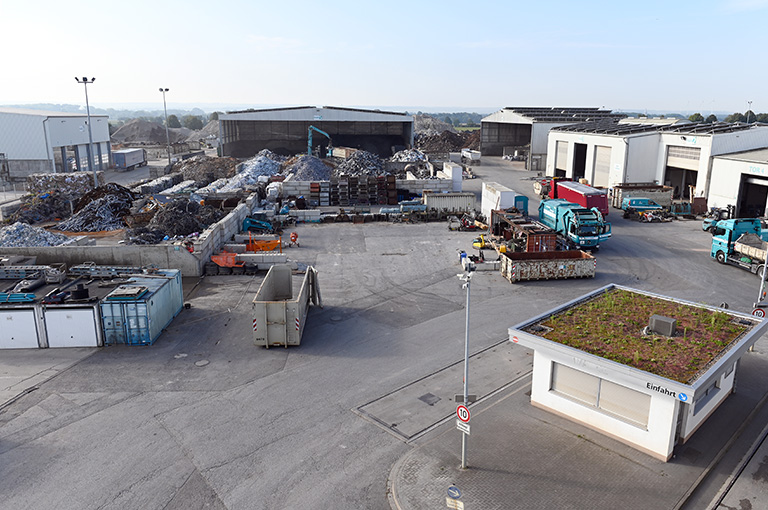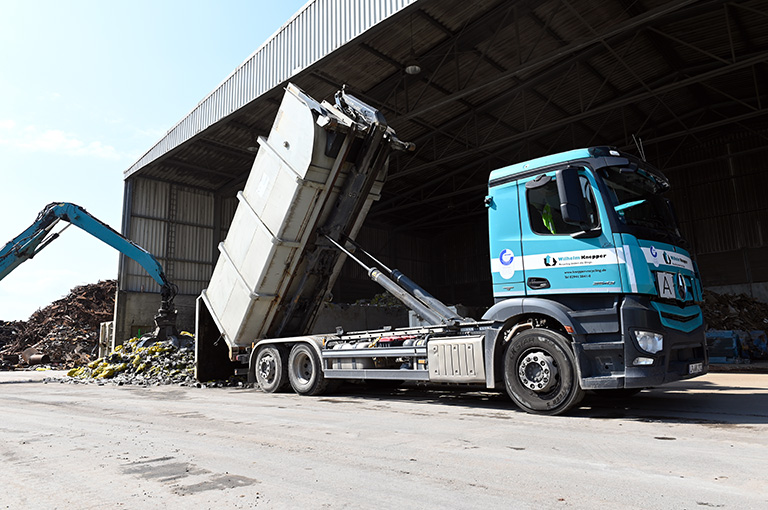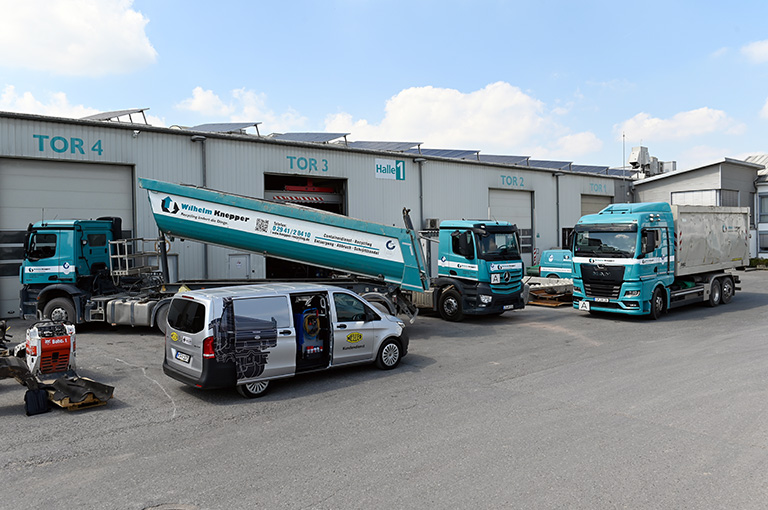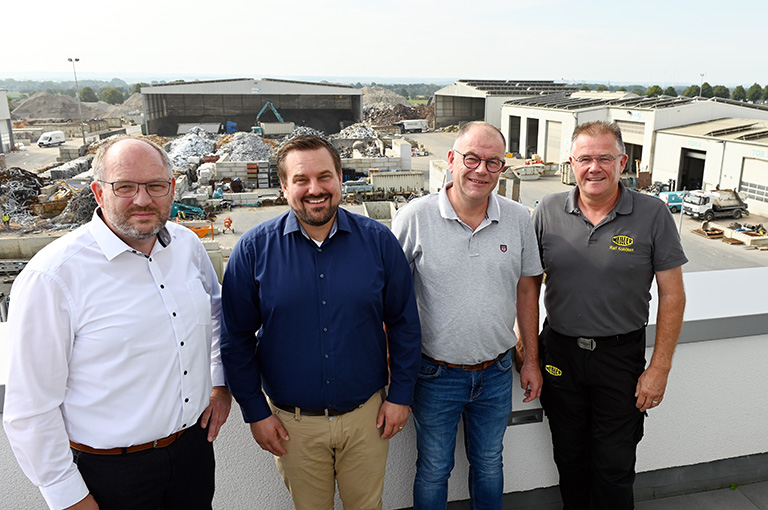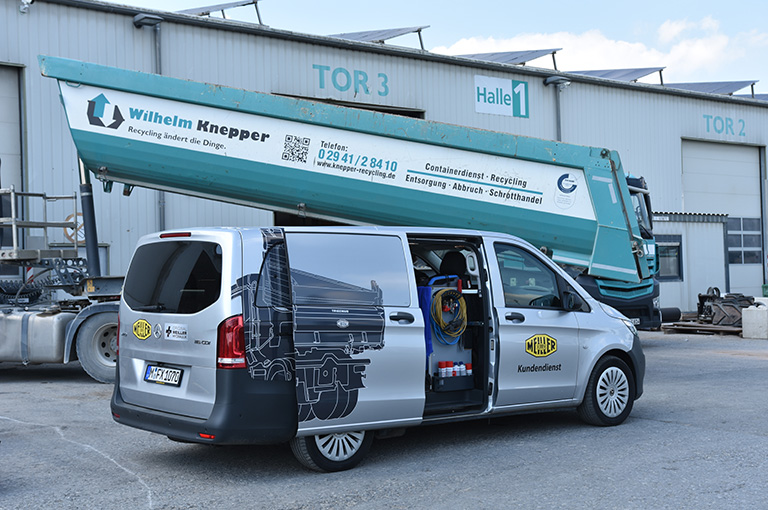“Our core business rests on five pillars: demolition and dismantling, recycling, scrap and non-ferrous metals, earthworks and logistics for our own areas and, also, external customers. In addition to trucks ranging from twelve-tonne vehicles to eleven-axle heavy transporters designed for a load of up to 74 tonnes, we also have a variety of mini and demolition diggers weighing up to 55 tonnes and both stationary and mobile crushing plants for this purpose”, says Peter Adams, Head of Logistics at Knepper and the man responsible for the entire fleet. A qualified forwarding agent, he studied logistics and business administration in Bremen and is very familiar with the disposal industry. The 37-year-old has been working at Knepper for almost three years. 2022 saw him faced with a truly mammoth project, as Knepper demolished the Ford works in Wülfrath (with an area of 90,000 m2) in record time and was commissioned with the recycling of several thousand tonnes of material. A task of similar complexity was addressed in 2023 with the demolition of an old cement plant south of Lippstadt in Erwitte. Demolition of the main stand in the stadium of Darmstadt 98, the Federal League (Bundesliga) football team, was also challenging from a logistical point of view.
Eight MEILLER tipping semi-trailers were involved in disposal work in all these projects, all of which had been sold to the recycling enterprise by Andreas Otto. Sales representative Otto has been with MEILLER for 26 years and looked after Knepper from the outset. He knows the company like the back of his own hand. He knows exactly what tipping semi-trailers, hooklifts and skip loaders need to be capable of in heavy demolition operations, and he can provide robust technology for these purposes. He also provides advice on appropriate additional equipment and makes practical recommendations for or against a purchasing decision. This is highly appreciated, as it cements a long-term, trustworthy and honest relationship between both firms.

